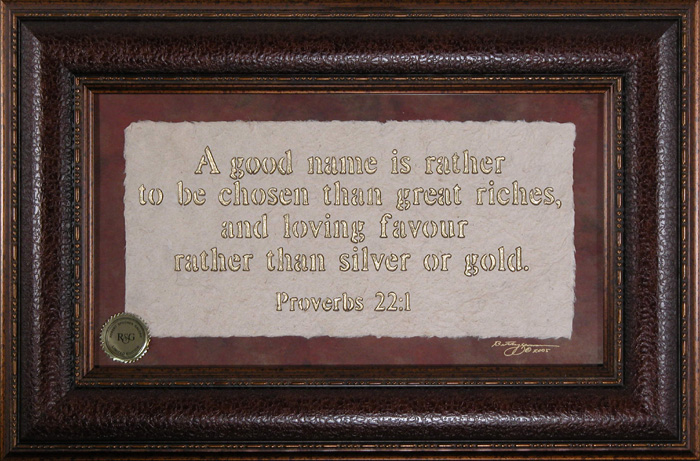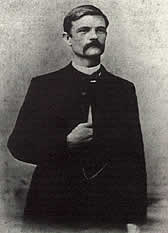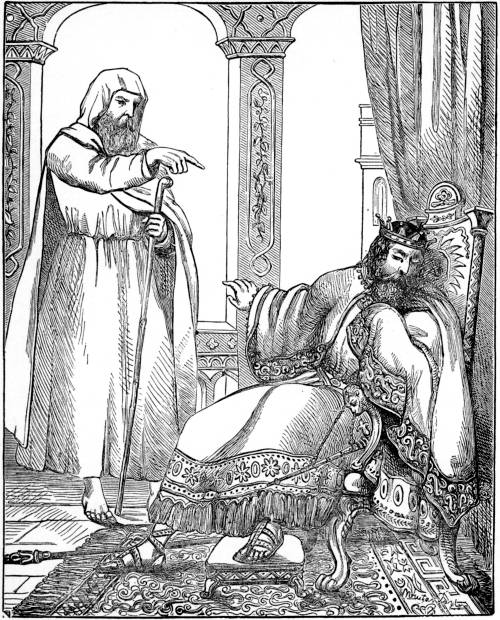
A group of people were waiting for the elevator in a department store. One woman seemed extremely nervous. When the elevator door opened and she was about to enter, she looked down the elevator shaft and drew back in a gesture of panic. “I can’t,” she trembled. “See how deep it is below!” All eyes immediately looked at the open space down the elevator shaft. The practical operator said to her with the kindliest of advice, “If you always look up in an elevator, Ma’am, you’ll have no need to fear.” So often we look down in fear instead of looking up in faith.
Where is your faith? In the book of Matthew, Christ several times rebuked the disciples for their lack of faith. We see the first instance in Matthew 6:30 – a lack of faith in the provision of God –“Wherefore if God so clothe the grass of the field, which to day is, and to morrow is cast into the oven, shall he not so much more clothe you, O ye of little faith?” You know, we have that same problem today. We worry about all the little things that God knows we have need of. And this passage tells us that He will provide if we’ll just trust in Him. Look at verse 33, “But seek ye first the kingdom of God, and his righteousness.” That is what we should be concentrating on – fulfilling His will for us – spreading the word of His gospel – telling others about Christ and His salvation – living holy, consecrated lives. If we will do these things, then “all these things shall be added unto you.”
Next, remember when Jesus and the disciples were on the restless sea and Christ in Matthew 8:26 rebuked the disciples – “Why are ye fearful, O ye of little faith?” he said to them. This was a lack of faith in the protection of God. John 10:29 tells us that we are smack dab in the center of the hand of God, and in that place of protection, nothing can harm us. How many times have we seen David in the Psalms praise God for His divine protection? We have the same God watching over us that David had. We have the same God watching over us that Paul and Silas had when they sang praises to Him from the prison cell and God delivered them. We have the same God watching over us that Peter and John had when God delivered them from prison. We have the same God watching over us that John had on the Isle of Patmos. We have His divine protection.
Next, we see in Matthew 14:31, the disciples had a lack of faith in the preeminence of God. In this instance, Peter actually showed tremendous faith in God by asking Christ to allow him to come to Him on the water. He got out of the boat and began to walk on the water towards Christ. What power – what faith – what courage – and then he began to doubt. He was out there – he was walking on the water – he was defying the law of gravity – but as he saw the boisterous sea and the waves crashing about him, he forgot that the one who was master of all the waves is the one he should trust in. He began to consider his circumstances – oh, how those circumstances will swallow you up! He forgot that God was preeminent over all circumstances – He began to sink – He cried out to the Lord – “Lord, save me.” Christ reached out and lifted him above his circumstances and then rebuked him for his lack of faith – “O thou of little faith, wherefore didst thou doubt?” He was reminding him of His preeminence over every circumstance.
Then lastly, we see the disciples’ lack of faith in the providence of God in Matthew 16:8, “O ye of little faith, why reason ye among yourselves, because ye have brought no bread.” They had forgotten to bring bread with them across the sea and were worried that Christ was rebuking them for it. He was teaching them about the leaven of the Pharisees – their wickedness – their hypocrisy – their false doctrines. But they thought he was rebuking them for not bringing bread – He who blessed five loaves and had twelve baskets full to spare – He whose providence was in control of every situation. Yet they doubted that providence. So I ask again – where is your faith?
Quote – “When the outward look is dark, try the upward look.” - Unknown
















